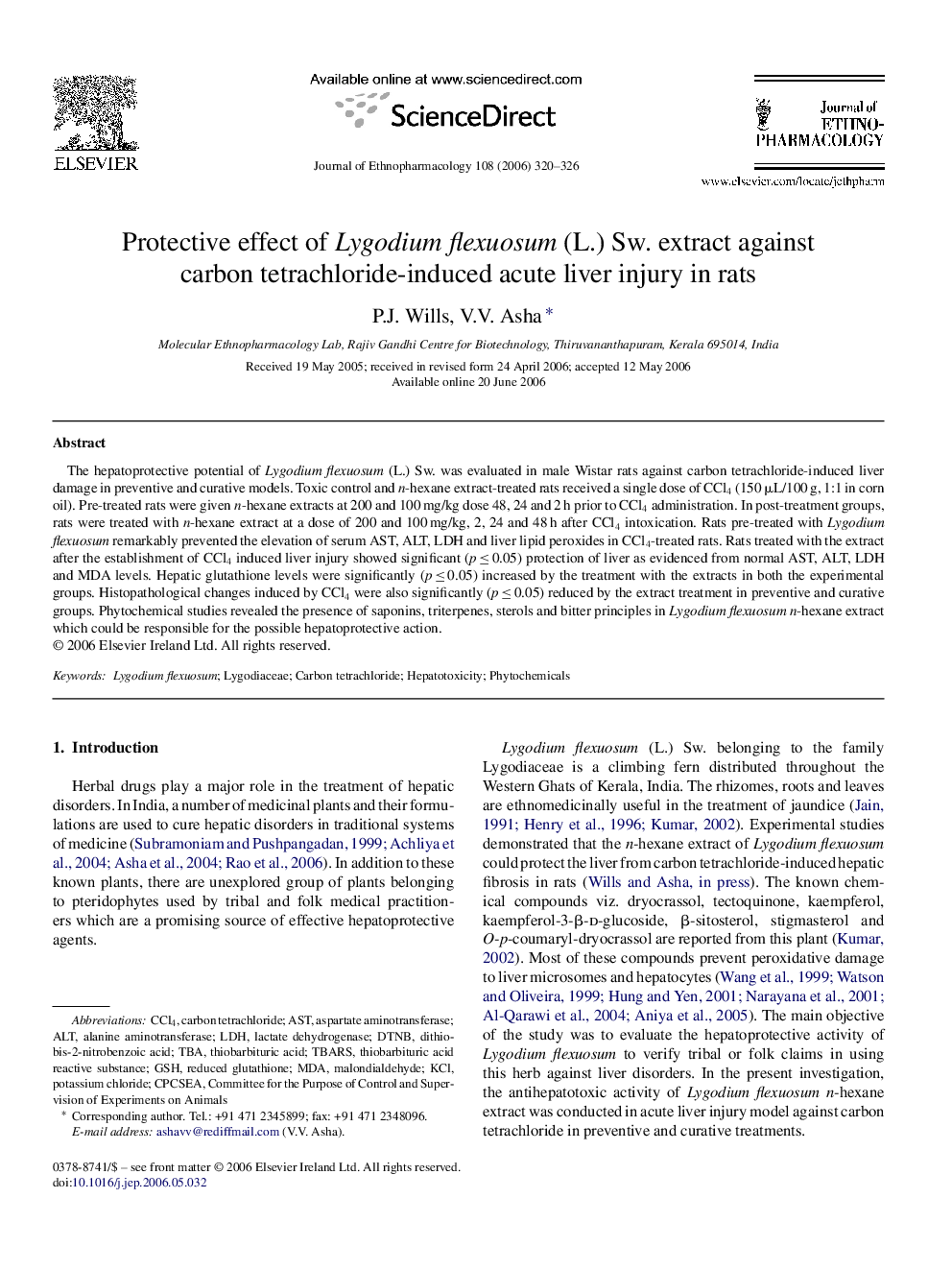| Article ID | Journal | Published Year | Pages | File Type |
|---|---|---|---|---|
| 2547377 | Journal of Ethnopharmacology | 2006 | 7 Pages |
Abstract
The hepatoprotective potential of Lygodium flexuosum (L.) Sw. was evaluated in male Wistar rats against carbon tetrachloride-induced liver damage in preventive and curative models. Toxic control and n-hexane extract-treated rats received a single dose of CCl4 (150 μL/100 g, 1:1 in corn oil). Pre-treated rats were given n-hexane extracts at 200 and 100 mg/kg dose 48, 24 and 2 h prior to CCl4 administration. In post-treatment groups, rats were treated with n-hexane extract at a dose of 200 and 100 mg/kg, 2, 24 and 48 h after CCl4 intoxication. Rats pre-treated with Lygodium flexuosum remarkably prevented the elevation of serum AST, ALT, LDH and liver lipid peroxides in CCl4-treated rats. Rats treated with the extract after the establishment of CCl4 induced liver injury showed significant (p â¤Â 0.05) protection of liver as evidenced from normal AST, ALT, LDH and MDA levels. Hepatic glutathione levels were significantly (p â¤Â 0.05) increased by the treatment with the extracts in both the experimental groups. Histopathological changes induced by CCl4 were also significantly (p â¤Â 0.05) reduced by the extract treatment in preventive and curative groups. Phytochemical studies revealed the presence of saponins, triterpenes, sterols and bitter principles in Lygodium flexuosum n-hexane extract which could be responsible for the possible hepatoprotective action.
Keywords
DTNBMDACPCSEACCl4ALTTBARSKClGSHTBAASTAspartate aminotransferaseAlanine aminotransferaseThiobarbituric acidHepatotoxicityPhytochemicalslactate dehydrogenaseLDHmalondialdehydethiobarbituric acid reactive substancereduced glutathioneCarbon tetrachloridePotassium chlorideCommittee for the Purpose of Control and Supervision of Experiments on Animals
Related Topics
Health Sciences
Pharmacology, Toxicology and Pharmaceutical Science
Pharmacology
Authors
P.J. Wills, V.V. Asha,
